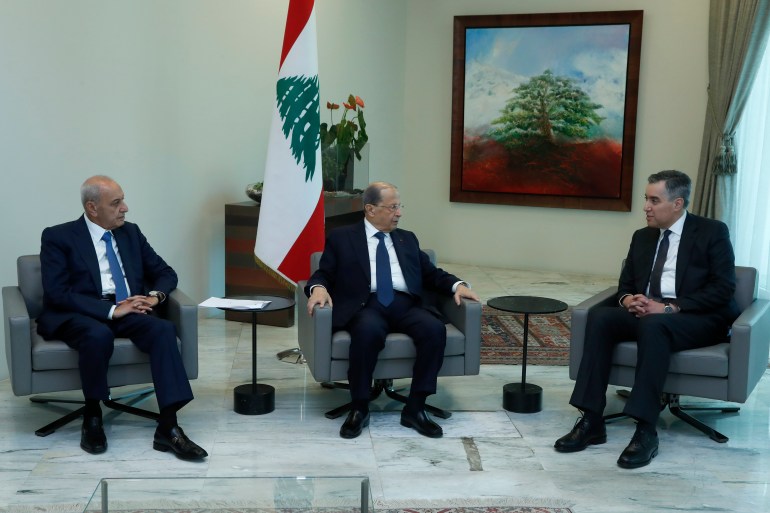Today, the Lebanese Prime Minister-designate, Mustafa Adib, toured the residential neighborhoods that were affected by the Beirut Port explosion, while Parliament Speaker Nabih Berri called for a change of the sectarian system in the country. This comes hours before the arrival of the French president to the Lebanese capital.
In a speech he delivered after his meeting with the Lebanese President Michel Aoun, who formally appointed him, Adeeb said that he hopes to form a government as soon as possible of the competent and competent in order to launch the basic reforms. It is expected to start its consultations next Wednesday.
"The opportunity in front of our country is narrow and the task I accepted is based on the fact that all political forces realize this and understand the need to form the government in a record period and start implementing reforms immediately from the entrance to the agreement with the International Monetary Fund," he added.
Adeeb - who is currently the Lebanese ambassador to Germany - won 51 votes in the first part of the parliamentary consultations, compared to 15 votes for Ambassador Nawaf Salam, and 5 MPs who abstained.
And in the first part of the consultations with President Aoun, heads of previous governments Tammam Salam, Najib Mikati, Saad Hariri, and Deputy Speaker of Parliament, Elie Ferzli, participated in the consultations.
Also among the participants were representatives of the Future Blocs, Al-Wafa for the Resistance, the National Caucus, the Progressive Socialist Party, the Independent Center Bloc, the Social Nationalist Bloc, the Consultative Meeting, and the Strong Republic Bloc.
These developments come hours before the arrival of French President Emmanuel Macron, who was reported to have pressured the divided leaders of Lebanon to reach an agreement on Adib.
Hassan Diab's government resigned on August 10 after the catastrophic explosion in the Beirut port killed about 190 people and massive damage.
Donor countries want Lebanon to implement long-awaited reforms to eliminate corruption and waste of public money, in order to release financial support.
The previous government began talks with the International Monetary Fund in May, but faltered amid divisions on the Lebanese side over losses in the financial system.
Macron - who arrives late this evening on his second visit in less than a month - has led international efforts to push Lebanon to make comprehensive changes to address the economic crisis and change the sectarian political system.
In this context, the Speaker of the Lebanese Parliament, Nabih Berri, today called for a change of the sectarian system in the country. He added, in a speech that is known as "on the eve of the centenary of Greater Lebanon," that "the most dangerous thing that the port disaster revealed, apart from the elements of the failed state, is the downfall of the entire political and economic system."
He concluded by saying, "There must be a change in this sectarian system, as it is the cause of the ills." This is not the first time that Berri has called for the abolition of "political sectarianism."

